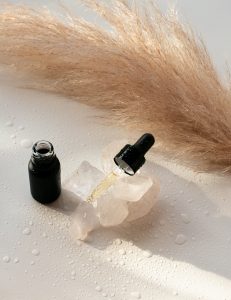Health
Endocrine disruptors – everyday items that can affect our hormones
Did you know that everyday items around our homes may be affecting our hormones? Known as endocrine disruptors, the term refers to certain substances that have been found to cause harmful effects by interfering with hormone function.
Hormones are secreted from eight major glands that make up the endocrine system (such as thyroid, pituitary, ovary and adrenal glands). Our hormones are chemicals that are responsible for different functions in our body. They carry messages to organs, skin, muscles and other tissues. And these signals tell our bodies what to do – and when to do it.
When our glands start producing too much or too little of hormones in our bodies, issues with our health may occur. These can include issues with fertility, sleeping, weight gain or loss, and struggles with our mood and behaviour.
Here, we share common items around the home that could be playing havoc with our hormones.
Plastics
Plastic is not only problematic for the environment, but our bodies too. As Dr Shanna Swan explained on an episode of The Liz Earle Wellbeing Show, plastics are thought to leach endocrine disrupting chemicals, such as BPA and phthalates, into food. This is especially so when we heat them up. Phthalates help to make plastics flexible.
 As this report explains, a number of studies suggest that these chemicals could have ‘adverse consequences on female and male reproductive health, thyroid function, metabolic alterations, brain development/function, immune responses, and development of cancers in hormone-sensitive tissues.’
As this report explains, a number of studies suggest that these chemicals could have ‘adverse consequences on female and male reproductive health, thyroid function, metabolic alterations, brain development/function, immune responses, and development of cancers in hormone-sensitive tissues.’
That’s not to say that we can’t use plastics at all, but growing research suggests we should be mindful of how we use them and minimise use where possible. For example, avoid microwaving leftovers in those plastic boxes you keep hold of from weekend takeaways.
Furthermore, this study suggested that cling film may also leach chemicals into our food, especially high fat ones, such as cheese.
All the more reason to switch to tin foil or beeswax food wraps, and glass and bamboo boxes.
Tinned goods
The lining of some tin cans contain BPA to protect from corrosion. Unfortunately, this has been linked to some cancers, reproductive and fertility issues, obesity, and early puberty.
 While food authorities deem it safe, Breast Cancer UK and other experts have long been calling for BPA to be removed from food packaging because of its links to breast cancer by affecting hormones.
While food authorities deem it safe, Breast Cancer UK and other experts have long been calling for BPA to be removed from food packaging because of its links to breast cancer by affecting hormones.
Some food producers have switched to BPA-free tin cans. It’s unclear how many have due to a lack of signposting. To be on the safe side, opt for glass jars or cardboard boxes where possible, and don’t keep food in the can in the fridge once opened (which most labels already state).
Biona Organic, which is readily found in supermarkets, labels its tinned products as BPA-free – meaning we can still confidently keep our cupboards stocked with tinned goods.
Fragrance
Many personal care products that contain fragrances contain phthalates, which can help the scent linger longer on the skin.
However, recent Havard studies suggest that exposure to phthalates can increase the risk of miscarriage and gestational diabetes in women who are pregnant. Research also links them to a reduction in sperm count in men, and thyroid irregularities.
But, as so many products contain phthalates, avoiding them entirely can be hard. And the fact the ingredient is often just labelled as ‘fragrance’ makes it even more tricky. 
Instead, you can use natural essential oils (we love Neal’s Yard, use LIZLOVES for 15% off at checkout) around your home, as well as to make fragrances using our guide. You can even come up with your own bespoke combinations to create a signature scent.
There are a number of phthalate-free products on the high street too. This includes the shampoos and conditioners created by sustainable personal care brand, Faith in Nature. The Body Shop says its products don’t contain phthalates either, along with the brand Bramley.
It’s worth doing a quick search on brands before using products. This way, you can check that you’re happy with the ingredients before putting on your skin.
Pesticides

According to this 2020 study, of the 800 pesticides used worldwide, 650 are believed to have endocrine disrupting properties.
There are a number of things we can do to reduce our intake of pesticides. Some pesticides are systemic – this means the plant absorbs them. It’s still important to wash all fruit and vegetables before eating. This helps to rinse away any residual chemicals that may be on the surface.
If you can, eat organically farmed fruits and vegetables where possible. Organic farming uses less (if any) synthetic pesticides. Instead, organic-approved pesticides are mostly derived from natural substances and also go through a strict approval process to ensure they aren’t harmful to humans and the environment.
If you would like to know more about pesticides and organic farming, listen to this episode of the Friday Five podcast with Ecoscapes founder Alex Bell.
Flame retardants
From home furnishings to appliances, products we use daily contain flame retardants to stop them from catching fire. As a result, we find them throughout the environment too.

Research suggesting negative effects of flame retardants on our endocrine systems is growing. This study suggests that exposure to flame retardants may be linked to thyroid issues. Meanwhile, another study suggested brominated fire retardants can overstimulate an adrenal gland hormone in a way that may lead to the development of cardiovascular disease.
The UK has strict regulations requiring the use of flame retardants. with many products requiring their use. As a result, Breast Cancer UK says that the UK and US unfortunately have the highest levels of flame retardants in human bodily fluids.
Sadly, there are few naturally flame-retardant home furnishings we can buy here in the UK. It’s still worth checking with suppliers before purchasing to check which chemicals they use.
Conclusion
While this may seem like a lot to take in, it’s important to note that a lot of these chemicals leave our bodies quickly within a matter of hours.
And there are actionable steps we can take to help to minimise our exposure, as we highlight above. With a little research, we can help to protect ourselves and our loved ones.





